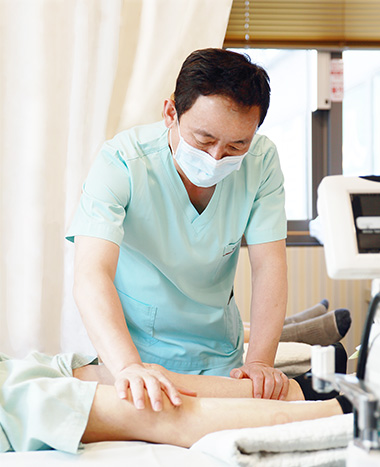
For a Better Tomorrow!
Seoul Ahnkang Hospital is Here with You.

Dysphagia Therapy
Dysphagia Therapy
What is Dysphagia?
Dysphagia is the process of eating and swallowing food, which is essential for human survival. When dysphagia occurs,
not only does it take a long time to swallow food, but it also limits the variety of foods one can consume.
Additionally, parts of the food may enter the airway instead of the esophagus, leading to serious complications such as aspiration pneumonia.
Due to these swallowing difficulties, the patient's nutritional status may deteriorate. When food enters the airway during swallowing, it becomes impossible to swallow food orally, necessitating the use of a nasogastric tube (NG tube) or gastrostomy (PEG tube) in some cases.

The causes and symptoms of dysphagia can be diagnosed through a Video Fluoroscopic Swallowing Study (VFSS). This video examination allows us to observe the entire process of food passing down to the esophagus, enabling us to understand the causes and severity of dysphagia step by step. Based on this, we systematically establish and implement a treatment plan tailored to the patient.
Dysphagia treatment includes strengthening the swallowing muscles, inducing the swallowing reflex through sensory stimulation, and preventing aspiration through vocal and breathing exercises. Additionally, the use of functional electrical stimulation (VitalStim) can further enhance the strengthening of the swallowing muscles. Various swallowing practice diets are used to conduct swallowing exercises according to the degree of the patient's dysphagia.
Respiratory Rehabilitation
Decreased lung function and pneumonia are common in rehabilitation patients, and these symptoms can also threaten their lives. Respiratory rehabilitation can prevent or treat aspiration pneumonia, atelectasis, and respiratory failure by helping with appropriate secretion discharge and strengthening respiratory muscles.

Massage, vibration therapy, coughing machine therapy, and correct posture education to expel secretions are provided during respiratory rehabilitation. In addition, strength training and aerobic exercise are performed to strengthen respiratory muscles. This improved respiratory function promotes the performance of activities of daily living and psychological stability.












